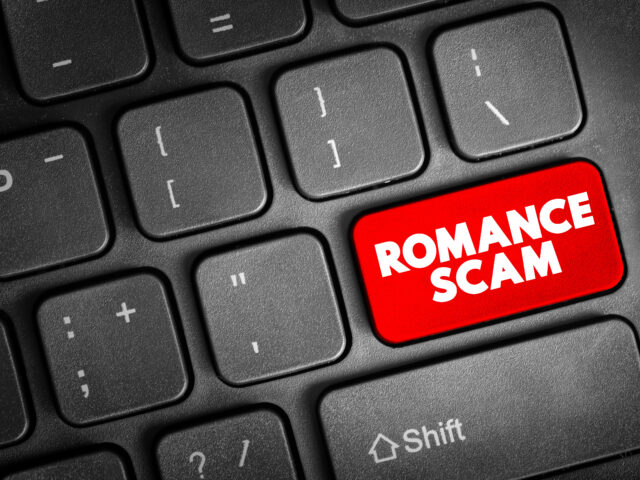Identity Theft and Fraud
Identity theft is the fastest growing crime in the country. Unfortunately, it’s becoming easier for criminals to steal and use your personal information without your permission to commit fraud or other crimes.
It's important to always be aware of scammers calling, texting, and emailing, asking for your account or card number. Even if they claim to be with Member One, NEVER give out this personal information over the phone or if it's solicited via text or email. Protect yourself and please call us directly at 800.666.8811 if you have any questions.
Scammers and fraudsters are after a wide variety of personal information that can be used to open new accounts or conduct fraudulent activities in their victim's name. Here are some examples of personal information that could be used maliciously by these criminals:
- Social Security Number: This unique-identifier can be used by scammers to open new credit cards, loans, or bank accounts.
- Date of Birth: Often used alongside other personal information to make a fraudulent application look more legitimate.
- Full Name: A full legal name is needed by these criminals in order to open accounts or conduct transactions in their victim’s name.
- Driver's License Number: Depending on the application, fraudsters may use a victim’s driver's license information to open new accounts.
- Credit Card Information: This includes credit card numbers, expiration dates, and security codes. With credit card information, criminals can make unauthorized purchases or open new accounts.
- Bank Account Information: Account numbers, debit card information, and other banking details can be used to initiate unauthorized transactions or open new accounts.
- Passwords and PINs: Access to passwords, PINs, or security question answers allows fraudsters to gain access to existing accounts, conduct fraudulent activities, and reset passwords, thus locking victims out of accounts.
There are many different ways to try and prevent becoming a victim of identity theft and fraud. Here are three suggestions that can help keep you safe:
- Be Vigilant: Enable email and text notifications for your financial and other important accounts. If you receive notice that changes to your account have been made that you did not authorize, contact the business responsible for that account immediately to let them know that you didn’t authorize a change.
- Don’t Respond: If someone calls or texts you and asks for personal information, do not provide it. If the caller claims to be from a business you are familiar with, hang up and dial that business directly at a number you know is correct.
- Don’t overshare: Protect personal details that can often be used to verify your identity – such as the last four digits of your Social Security Number, your phone number, your birthday, your car’s make and model, or your mother’s maiden name. Also remember to not post this type of information on social media.
Know The Scams Before They Happen
There are many types of identify theft scams that target people from all walks of life. Here are three of the most common that directly target your personal finances:
Financial Identity Theft
When a person’s credit card and bank information are stolen, and then used to pay for goods and services. Often when this happens, a criminal will max out your credit card, or use your account information to set up a new credit card or financial service.
Phishing Scams
When scammers try to trick you into sharing your personal information, like your bank account, credit card numbers, or passwords. These scams usually show up as email messages that look legitimate, or seem to come from a familiar source (such as your alma mater, a subscription service, or even your bank). Many scam emails direct you to “click here” in order to verify information.
Skimmer Scams
They can literally grab your information right in front of you without you even knowing it. Criminals insert skimmer technology inside the card readers of ATM machines, gas pumps, and even the point-of-sales systems at restaurants and retail shops. The technology “skims” the data that’s stored on the strip, allowing criminals to duplicate and use this information.
Know What To Do
With so many questions surrounding identity theft and fraud, we wanted to provide quick answers to commonly asked questions, empowering you to take immediate steps to protect yourself and lessen the potential damage.
Call 866.820.8854 to report a lost or stolen debit card.
Call 800.449.7728 or 866.820.2936 to report your credit card as lost or stolen.
Contact us at 800.666.8811 or 540.982.8811 to place a stop payment on check numbers lost. You can also go online and place a stop payment on checks lost and monitor your account for any suspicious activity.
Contact us at 800.666.8811 or 540.982.8811 or visit your local branch. If the charge is on your debit card, call 866.820.8854.
You'll want to take the following steps:
- Place a freeze on your credit report by going to the Federal Trade Commission's website and completing an Identity Theft report
- Contact us at 800.666.8811 or 540.982.8811 or visit your local branch.
Contact us directly at 800.666.8811 or 540.982.8811 or call the number on the back of your card.
Recent Blog Posts
Access Additional Resources
Another way to educate yourself is through the following online resources and financial services:
Credit Reporting Bureaus
- Equifax Fraud & Identity Theft Resources
- Experian Fraud & Identity Theft Resources
- TransUnion Fraud Victim Resources


